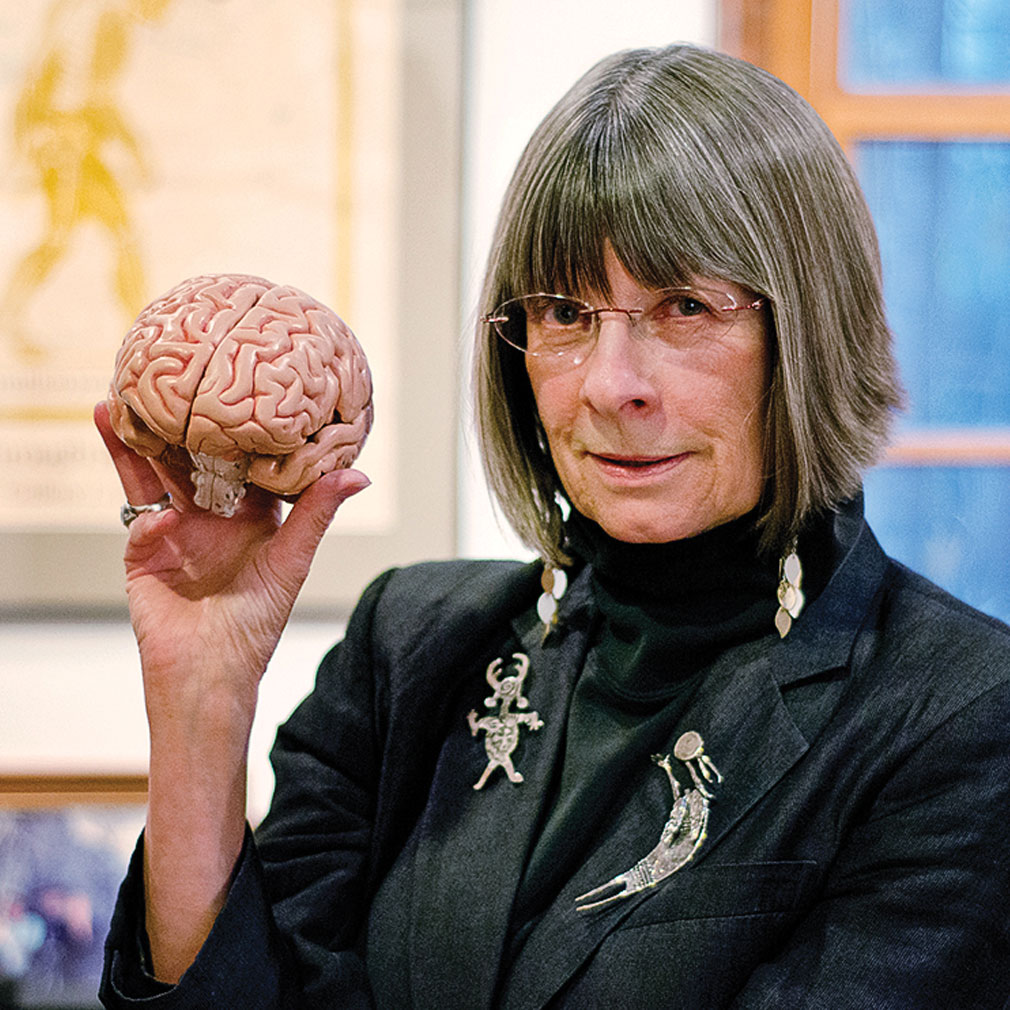Touring “Down Under” to Talk Hobbits, Einstein, and the Evolution of Language
Guest post by Cynthia Shore
At the heart of her research, SAR senior scholar Dean Falk asks, “What can fossils, babies, and Einstein tell us about the way our brains have evolved?”
The paleoanthropologist addressed this question and more during a tour of lectures and interviews across western Australia this summer, where, on the Australian Broadcasting Corporation (ABC) Radio program “Late Night Live”, she touches upon evolution and language, the uniqueness of Einstein’s brain, and “hobbits”, or the newly discovered (and short) human species, Homo floresiensis.

Falk and her team studied a fossilized braincase of Homo floresiensis (“Hobbit”). She notes in the interview that researchers originally believed that Homo erectus was the only early relative of humans that migrated from Africa to Asia and lived there until fairly recently. The discovery of another human species on the island of Flores in Indonesia is expected to profoundly impact science’s thinking about our evolution after we migrated from Africa two million years ago.
In her groundbreaking work on the development of language, Falk posits that when our ancestors started walking on two legs five to seven million years ago, human babies became less able to cling to their mothers. This led to mothers placing their babies nearby on the ground, which meant mothers articulated more to maintain a connection with the separated child. As separated mothers and infants developed increasingly complex vocal and gestural communications, larger brains evolved, and, eventually, more complex language patterns emerged.
Falk notes that the exaggerated and repetitious form of “baby talk”, which no other animals do and which all humans do with their children, is exactly the practice that allows human infants to learn to speak. She says a strong argument can be made that this mother/child interaction is what drove human evolution:
“These networks that I think were initially evolved for communication between mothers and infants are now used for all kinds of analytical thinking and inventions in this day and age like computers and complex technology.”
Falk also discusses her work (done at SAR) with the team that studied Einstein’s dissected brain, which had numerous unusual features including an enlarged corpus collosum.
Click here to listen to the full ABC Radio interview.
A 2008–2009 SAR resident scholar, Falk is currently the Hale G. Smith Professor of Anthropology at Florida State and has been a Permanent Honorary Professor at the University of Vienna since 1997. Her books include Braindance Revised and Expanded (2004), Finding Our Tongues: Mothers, Infants & the Origins of Language (2009), and The Fossil Chronicles: How Two Controversial Discoveries Changed Our View of Human Evolution (2011), which resulted from her SAR residency. Her latest book is Geeks, Genes, and the Evolution of Asperger Syndrome, coauthored with her granddaughter who has Asperger syndrome and published in 2018.
Falks appearances in this recent tour of Australia also included lectures at the University of Melbourne, the Australian National University in Canberra, and Griffith University in Brisbane.
